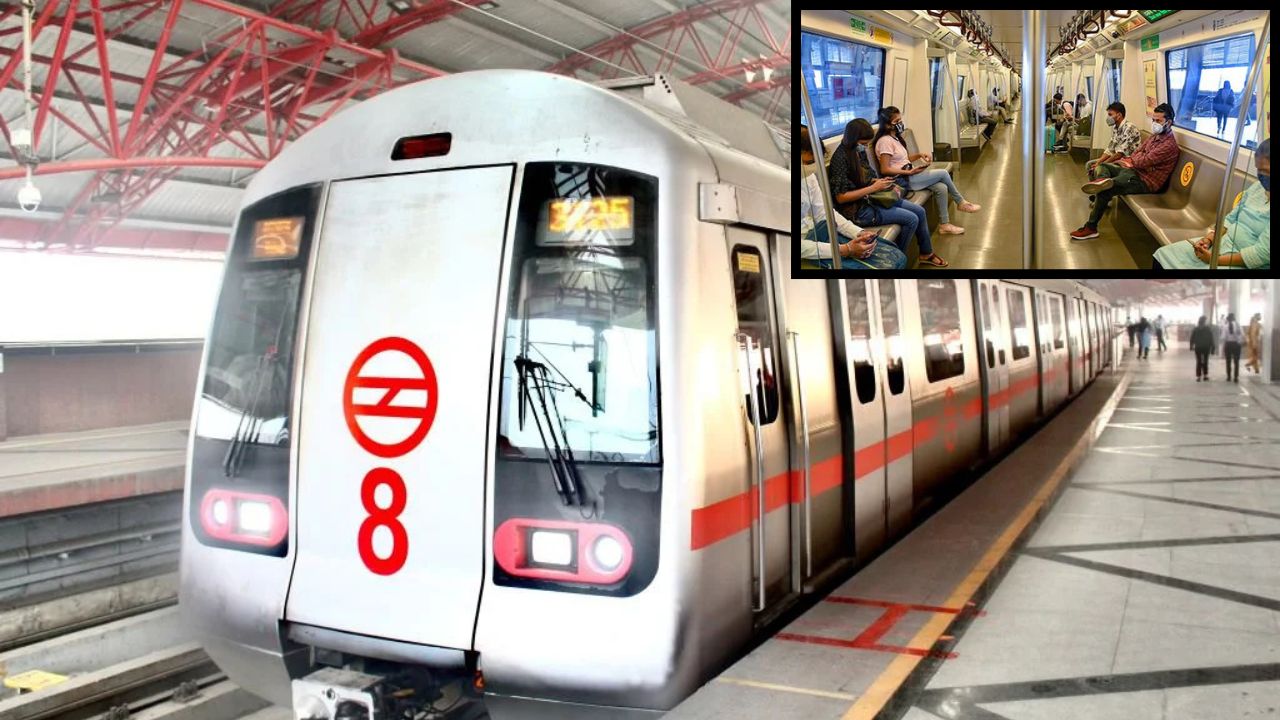 English
English

Delhi Metro launches 40 additional weekday trips and rolls out dust control measures to fight air pollution. Will this step encourage commuters to ditch private vehicles and improve travel safety and comfort across the city?

DMRC may increase trips to 60 if AQI worsens.
New Delhi: In a bid to reduce Delhi’s worsening air quality, the Delhi Metro Rail Corporation (DMRC) announced it will operate 40 additional trips on weekdays. DMRC Managing Director Dr Vikas Kumar, accompanied by officials from the civil and environment departments, inspected construction sites along the Krishna Park Extension–RK Ashram Marg corridor in north Delhi, including Ashok Vihar and Derawal Nagar, to review dust-minimising measures.
Dr Kumar said that the number of extra trips could rise to 60 if the city enters GRAP-III, the highest alert under the Graded Response Action Plan. The enhanced service aims to encourage commuters to switch from private vehicles to metro travel, reducing road congestion and vehicular pollution.
To curb dust emissions, DMRC has been implementing multiple strategies, including water sprinkling at construction and demolition sites, safe disposal of waste, and mandatory wheel washing before vehicles leave the sites. Approximately 82 anti-smog guns are currently operational across various project locations, with more to be added as necessary. DMRC was among the first agencies in the National Capital Region to adopt these devices, even before their mandatory use.
The DMRC highlighted long-term environmental measures alongside immediate steps to reduce pollution. The Blue Line metro, connecting Yamuna Bank with Vaishali, and Metro Bhawan headquarters have been declared carbon neutral. Using the Miyawaki method of dense urban plantation, over 12,500 saplings were planted near the Najafgarh Metro Depot and Metro Niketan residential colony, covering approximately 1.2 acres.
Additionally, during Phase IV construction of underground stations at Ghanta Ghar and Pul Bangash, dewatered water was routed to Roshanara Bagh Lake, contributing to its rejuvenation.
To further enhance commuter convenience, DMRC plans to extend platforms at 32 stations on the Blue Line and Blue Line Extension, including Noida Sector-15, 16, 18, Golf Course, Noida City Centre, Laxmi Nagar, Nirman Vihar, and Preet Vihar. The project, estimated at ₹5.71 crore, is expected to be completed within a year and will allow stations to accommodate longer trains and larger passenger volumes.
Platform extensions will make boarding and deboarding smoother, reduce crowding, and improve passenger safety, particularly during peak hours. With daily ridership reaching 65 lakh on its 10 lines and two rapid rail routes, DMRC is focused on future-proofing its infrastructure while maintaining commuter comfort.
Delhi Metro’s efforts aim to reduce reliance on personal vehicles and combat the city’s persistent air pollution problems. With the combination of extra trips, anti-smog measures, carbon-neutral initiatives, and upgraded platforms, DMRC is positioning itself as a safer, greener, and more convenient alternative for millions of daily commuters.